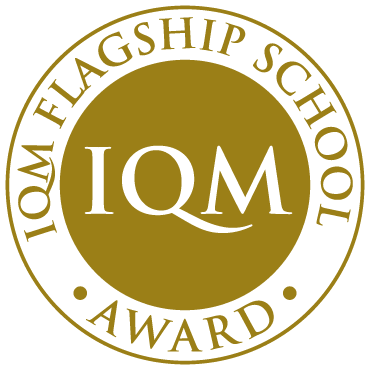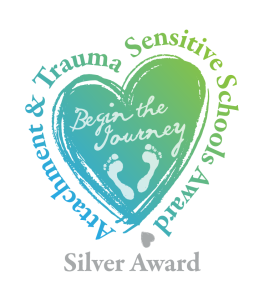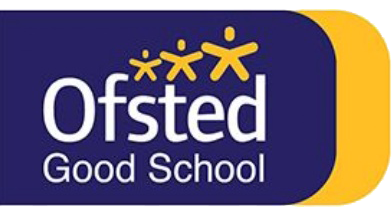Sports Premium
WHAT IS THE SPORTS PREMIUM?
The Government is providing funding directly to primary school headteachers to spend on improving the quality of sport and PE for all their children. The funding is ring fenced and can only be spent on sport and PE provision in schools. The amount of PE and sport funding which schools receive is based upon the number of children they have in Years 1-6.
When a school receives an Ofsted Inspection, they will assess how schools spend their PE and sports funding.
Governors and the schools’ Improvement Partner will also ask about and assess how the funding is spent in between Ofsted inspections.
Detailed information about PE and sports funding for Primary Schools can be found at:
https://www.gov.uk/guidance/pe-and-sport-premium-for-primary-schools
PURPOSE OF FUNDING
Schools must use the funding to make additional and sustainable improvements to the quality of PE and sport they offer. This means that you should use the premium to:
-
Develop or add to the PE and sport activities that your school already offers
-
Make improvements now that will benefit pupils joining the school in future years
For example funding can be used to:
-
Hire qualified sports coaches to work with teachers •
-
Provide existing staff with training or resources to help them teach PE and sport more effectively
-
Introduce new sports or activities and encourage more pupils to take up sport
-
Support and involve the least active children by running
There are some things which the PE and Sports Premium Funding is not allowed to be spent on. These are:
-
Employ coaches or specialist teachers to cover planning preparation and assessment (PPA) arrangements - these should come out of your core staffing budgets
-
Teach the minimum requirements of the national curriculum - including those specified for swimming (or, in the case of academies and free schools, to teach your existing PE curriculum) or extending school sports clubs, holiday clubs and Change4Life clubs
-
Run sport competitions
-
Increase pupils’ participation in the School Games
-
Run sports activities with other schools
HOW WILL WE BE SPENDING THE FUNDING AND WHO WILL BENEFIT?
The staff, children and governors at Woodhill Primary all agree that the money must be used so that:
-
All children benefit regardless of sporting ability,
-
Staff have access to resources and training opportunities, plus continued professional development to improve the quality of teaching and learning in physical education
-
Children are exposed to a range of traditional and non-traditional sports and health enhancing activities through the curriculum, clubs and school visits.
Please see details of our Sports Premium spending and impact for 2024-25 in the attached documents at the bottom of the page.
Our 2024/25 priorities included:
-
To ensure that all children are receiving high quality opportunities to participate and develop their skills in a range of sports and games, through funded PE sessions
-
To partake in a number of greater sporting opportunities and competitions through our membership within the Greenwich School Sports Partnership (GSSP)
-
Access to further CPD for staff through the GSSP
-
To embed sporting interventions for targeted children to improve social, physical and emotional skills.
-
To continue to develop our lunchtime and after school club provision, as well as providing opportunities to improve physical health and wellbeing e.g. healthy eating, cookery and gardening.
Physical Education & Sport
During physical education lessons, children follow personal learning journeys based on the development of fundamental skills – the framework of skills which provide the foundation of competitive sport and curricular PE. Given the opportunity to learn a wide range of physical skills, children acquire the basic building blocks for the competence, confidence, and motivation, to try many physical activities and sports.
The three main categories of Fundamental movement skills are:
• Agility
• Balance
• Coordination
The curriculum encourages creativity, collaboration and effort whilst simultaneously promoting the physical and social development of each and every child in group, partnered and paired learning. The skills children are encouraged to learn are:
• Personal skills
• Social skills
• Cognitive skills
• Creative skills
• Physical skills
• Health related fitness
In Key Stage 1, children explore the multi-abilities and Fundamental skills through gross and fine motor control, using stimuli such as music, stories and games. Children begin to develop the notion of teamwork and collaboration, whilst beginning to develop the fundamental movement skills that underpin competitive sport and curricular PE –
“We practise running and jumping through different parts of the world like ‘The Lonely Beast’ ” Aisha (year 1).
During year 3 and 4, we begin to look at how the fundamental skills can be combined, and how they can be utilised in sporting activities. Children are given the framework to learn ‘How’ to perform different sporting activities, considering ‘Why’ these may be beneficial in a range sporting contexts; considering tactics, performance and motivation. By applying the fundamental movement skills to a range of sporting contexts, children gain a knowledge and understanding of the transference of skills across a range of activities – applying what they know to unfamiliar games/challenges.
We participate in an intensive swimming program in year four, which provides children with the necessary skills for water confidence, water safety and specific stroke technique. Of our current Year 6 cohort, 18/19 Year 6 cohort, 80% were capable of performing a safe rescue and swimming 25m using a variety of strokes.
"Swimming daily has really given my child the confidence and motivation to learn to swim. I am so happy that in such a short amount of time she has learnt to swim, and she is encouraging us to swim as a family" (Parent year 4).
Our program aims to have every child swimming confidently by the end of Year 4 with the target of 25 metres as an ideal for children.
Throughout year 5 and 6 year 5 and 6, children consolidate and further develop their sporting skills through a range of competitive activities, ranging from outdoor and adventurous team building challenges, to more traditional games such as tag rugby, football, cricket, high-5 netball, gymnastics and athletics.
Following the ‘Sport Education’ model, children will continue to explore strategies, tactics and techniques, and develop the skills needed to decide when and where to apply them. They experience different roles in sport including coach, performer, official and team manager; developing a deeper understanding of rules, ethics and motivation
“I love coaching, it's great to be able to analyse someone’s performance and make corrections. It also helps my own learning as I think about how I can coach myself.” Joseph (Year 6).
Woodhill offers a range of afterschool and lunchtime clubs to further promote a love of sport and being active. These are geared towards competitive performance, increasing activity levels and increasing childhood experiences with Sport.
We actively seek out and engage with our local community, forging links and relationships between children and clubs to continue their sporting ambitions outside of curricular hours.
Our PE and Sport and Health provision has been awarded the asPE Quality Mark with Distinction for the provision of Physical Education and Sport. This has been an award which recognises the success of our practitioner’s commitment to Physical Education and the outstanding development of the children's physical literacy skills.
"The afPE Quality Mark is a prestigious award that will evidence the strength and quality of physical education and sport in your school. It will raise the profile of the subject and the school, both locally and nationally, and will promote the outstanding work that is being undertaken on a daily basis." - afPE
The validation report mentioned that at Woodhill:
• The quality of teaching is outstanding
• There is a depth of learning across the cognitive and affective domains
• Pupils displaying greater depth in their progress follow a bespoke movement programme.
• Swimming provision is outstanding







